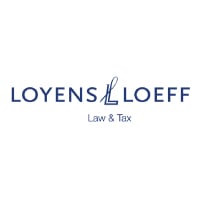

General Counsel and Corporate Secretary | Port of Rotterdam




Margreet Poot
General Counsel and Corporate Secretary | Port of Rotterdam
What are the projects that you are most proud of working on over the past 12 months?
The Port of Rotterdam collaborates with companies in the port and the government on a future-proof port with net zero CO2 emissions. That demands a change to an energy system based on fossil energy to a circular economy.
As a general counsel and corporate secretary, I encourage our teams to enable these transitions. From a legal perspective, we work towards contractual terms that incentivise the reduction of CO2 emissions, and foster collaborations with our clients on the realisation of new energy infrastructures. For example, our general terms now incentivise green and efficient shipping instead of volumes. And, in discussions on the renewal of our land contracts, we include incentives for green operations on our land. Furthermore, we support projects to build new energy infrastructure, such as CCS in gas fields in the North Sea. These projects concern legal concepts and responsibilities which have not always been tried or tested and are still subject to a lot of change e.g. the outcome of court cases, the impacts of regulatory changes such as the Clean Industrial Deal and uncertainties concerning nitrogen policy. This requires us to be a true business partner and devise new concepts that help our clients and society.
I am proud of the teams that rise to this challenge, and proud to be a part of that transition. From the perspective of my role as a corporate secretary, this means that I can support the idea that decisions by our boards and shareholders are made not only in the interest of our company, but also in the interests of our stakeholders and society too. In our decision documents, we include the impacts of our plans on CO2 emissions and other ESG targets. Furthermore, we review the setup of our governance structures to enable the company to focus on and prioritise projects to reach these strategic goals and eliminate unnecessary control structures that hamper quick decision making.
What do you think sets you apart from other in-house counsel?
Not taking the legal perspective . This concerns both what we do as a legal department and how we run the legal department, too. As a legal department, we should help set out strategies that enable business and societal goals. Law is a tool that should be used for good purposes. Understanding the interests of our stakeholders, our business and our people is key. I encourage our teams to take this as a starting point for any advice or structure. And I take particular interest in managing our department with business sense, too. This means we decide how we spend our money wisely. We have decided that we will hire and educate lawyers who are specialised in our key legal fields. We have procured a number of legal partners to support them. And we have outsourced services to firms that are able to handle the non-strategic legal topics that we still need to provide. We strive for data-driven decision making too. So, setting up databases and reporting on our spending and our contracts to be able to continuously improve our services are other ongoing projects.